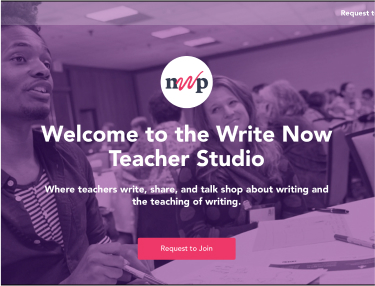Discover Content
Results for “Games”
Transforming Gamers into Game Designers: Game Design as Connected Learning with Rural Youth in Challenging Times
Guided by interests in video games, the Leatherstocking Writing Project engaged local youth in designing and producing video games as a way to support writing enrichment opportunities which were otherwise limited in their rural community.
Towards a new media Expo Night
Chad Sansing reflects on the complementary role played by writing and new media in students' learning by looking at the student work and reflection. Note that some of the media originally included is no longer available.
More Than a Game: One Teacher's Journey into Video Games
Kevin Hodgson explores the use of games and game design in his classroom. Note that some of the original media published here is no longer available.
Bringing Young Gamers Together: A Digital Writing Camp
Teacher consultant Kevin Hodgson describes the first Introductory Game Design Summer Camp hosted by the Western Massachusetts Writing Project. Note that the original media shared with this resource is no longer available.
Video Game Design
This five-session lesson plan uses a video game design tool called Bloxels to introduce middle-school students to video game design.
Creative Writing and World-Building in Minecraft: Education Edition
The 10 Minecraft: Education Edition lessons built were co-created with the help of interested educators and youth; each was imagined as a playful interpretation of a concept familiar in English Language Arts, and each asks players to write and build in different ways.
Chocolate and Change: Gaming for Social Justice
Christina Puntel shares the experience of doing a Descriptive Review Process with two students’ who created a game based on studying the United National Millennium Development goals.
Write Now Teacher Studio

Where teachers write, share, and talk shop about writing and the teaching of writing
Hosted by the National Writing Project, the Write Now Teacher Studio is an open, online community of educators for educators. It’s a place to write together, examine our teaching, create and refine curricula, and work toward ever more effective and equitable practices to create confident, creative, and critical thinkers and writers in our classrooms and courses.

